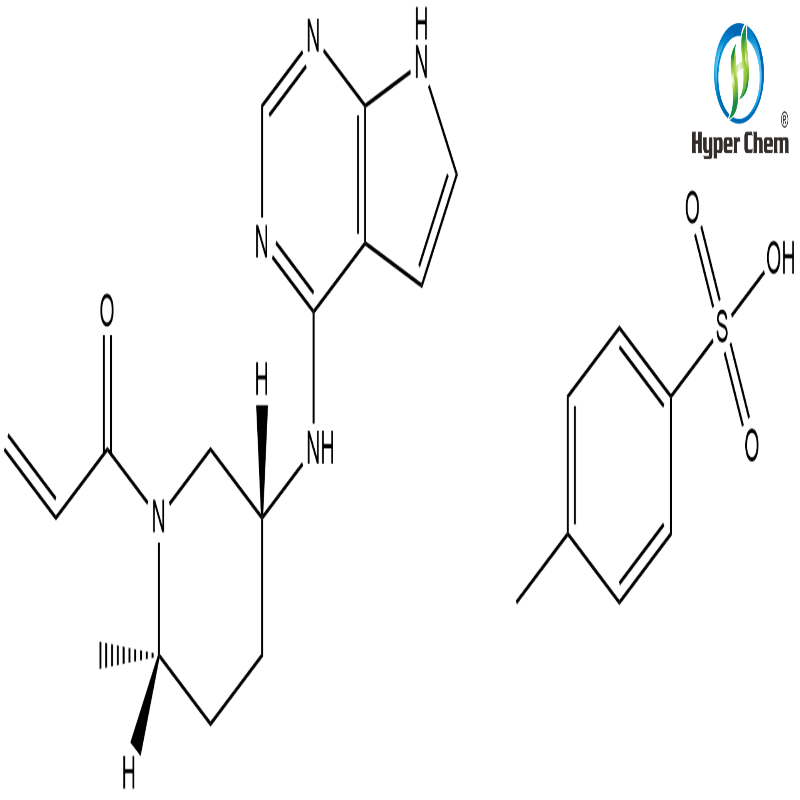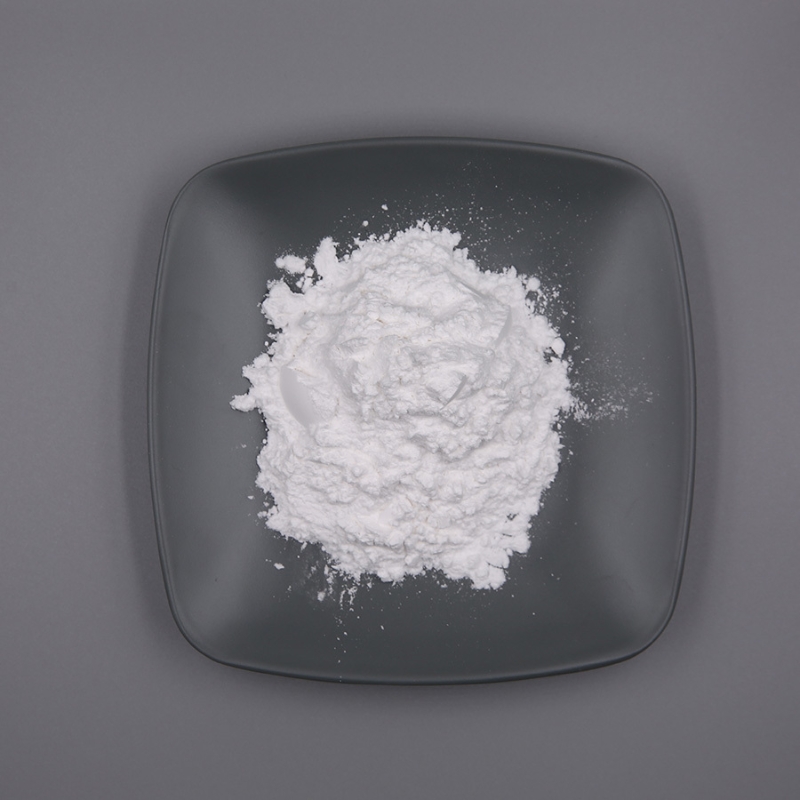-
Categories
-
Pharmaceutical Intermediates
-
Active Pharmaceutical Ingredients
-
Food Additives
- Industrial Coatings
- Agrochemicals
- Dyes and Pigments
- Surfactant
- Flavors and Fragrances
- Chemical Reagents
- Catalyst and Auxiliary
- Natural Products
- Inorganic Chemistry
-
Organic Chemistry
-
Biochemical Engineering
- Analytical Chemistry
-
Cosmetic Ingredient
- Water Treatment Chemical
-
Pharmaceutical Intermediates
Promotion
ECHEMI Mall
Wholesale
Weekly Price
Exhibition
News
-
Trade Service
Recently, Redox Biology published a research paper (GSNOR facilitates antiviral innate immunity by restricting TBK1 cysteine S-nitrosation) completed by Yao Yonggang's team from Kunming Institute of Zoology, Chinese Academy of Sciences and Chen Chang's team from Institute of Biophysics
.
Studies have found that nitrosoglutathione reductase (GSNOR) can inhibit the nitrosylation of TBK1 protein, increase the activity of TBK1 phosphokinase, and then promote the expression of interferon (IFN), enhance the body's antiviral immune response, and inhibit the virus Infection
.
Innate immunity is the body's first line of defense against viral infections
.
Host cells use pattern recognition receptors to recognize virus invasion, activate IFN expression through a series of signal transduction, and then inhibit virus infection
.
In the cytoplasm, RIG-I-like receptors and cGAS recognize RNA and DNA viruses, respectively.
RIG-I-like receptors transmit signals downstream through the linker molecule MAVS, and cGAS transmit signals downstream through STING
.
Both MAVS and STING recruit TBK1, which can phosphorylate IRF3 and induce IFN expression
.
The body precisely regulates the key molecules in the natural immune signal pathway to maintain its own homeostasis
.
Common regulation is the regulation of post-translational modification of antiviral protein, such as phosphorylation and ubiquitination modification
.
Protein sulfhydryl nitrosation (S-nitrosation) is a redox-based post-translational modification of proteins, which can adjust a variety of physiological and pathological processes by changing protein conformation, stability, subcellular localization, and biochemical activity
.
GSNOR is an evolutionarily highly conserved nitrosated glutathione (GSNO) reductase, which metabolizes GSNO to regulate protein sulfhydryl nitrosylation
.
The scientific research team analyzed the role of protein sulfhydryl nitrosylation regulated by GSNOR in the process of antiviral innate immunity
.
Studies have shown that knocking out GSNOR in mouse embryonic fibroblasts and RAW264.
7 macrophages can significantly inhibit IFN expression and promote DNA viruses (herpes simplex virus type 1, HSV-1) and Replication of RNA virus (vesicular stomatitis virus, VSV)
.
Corresponding to this finding, mice pretreated with GSNOR knockout and GSNOR inhibitor N6022 are more susceptible to HSV-1, and the lethality after infection increases
.
Subsequent research on the mechanism found that GSNOR deletion enhanced the S-nitrosylation level of TBK1 protein in cells at Cys423, inhibited the activity of TBK1 kinase, and thereby inhibited the antiviral innate immune effect
.
The study explained the role and mechanism of GSONR in the antiviral innate immune response, and found that protein sulfhydryl nitrosylation is involved in innate immunity, which provides new ideas and targets for the development of antiviral drugs
.
The research work was funded by the National Natural Science Foundation of China, the Chinese Academy of Sciences and Yunnan Province
.
GSNOR promotes antiviral innate immunity by inhibiting TBK1 cysteine S-nitrosation Source: Institute of Biophysics, Chinese Academy of Sciences
.
Studies have found that nitrosoglutathione reductase (GSNOR) can inhibit the nitrosylation of TBK1 protein, increase the activity of TBK1 phosphokinase, and then promote the expression of interferon (IFN), enhance the body's antiviral immune response, and inhibit the virus Infection
.
Innate immunity is the body's first line of defense against viral infections
.
Host cells use pattern recognition receptors to recognize virus invasion, activate IFN expression through a series of signal transduction, and then inhibit virus infection
.
In the cytoplasm, RIG-I-like receptors and cGAS recognize RNA and DNA viruses, respectively.
RIG-I-like receptors transmit signals downstream through the linker molecule MAVS, and cGAS transmit signals downstream through STING
.
Both MAVS and STING recruit TBK1, which can phosphorylate IRF3 and induce IFN expression
.
The body precisely regulates the key molecules in the natural immune signal pathway to maintain its own homeostasis
.
Common regulation is the regulation of post-translational modification of antiviral protein, such as phosphorylation and ubiquitination modification
.
Protein sulfhydryl nitrosation (S-nitrosation) is a redox-based post-translational modification of proteins, which can adjust a variety of physiological and pathological processes by changing protein conformation, stability, subcellular localization, and biochemical activity
.
GSNOR is an evolutionarily highly conserved nitrosated glutathione (GSNO) reductase, which metabolizes GSNO to regulate protein sulfhydryl nitrosylation
.
The scientific research team analyzed the role of protein sulfhydryl nitrosylation regulated by GSNOR in the process of antiviral innate immunity
.
Studies have shown that knocking out GSNOR in mouse embryonic fibroblasts and RAW264.
7 macrophages can significantly inhibit IFN expression and promote DNA viruses (herpes simplex virus type 1, HSV-1) and Replication of RNA virus (vesicular stomatitis virus, VSV)
.
Corresponding to this finding, mice pretreated with GSNOR knockout and GSNOR inhibitor N6022 are more susceptible to HSV-1, and the lethality after infection increases
.
Subsequent research on the mechanism found that GSNOR deletion enhanced the S-nitrosylation level of TBK1 protein in cells at Cys423, inhibited the activity of TBK1 kinase, and thereby inhibited the antiviral innate immune effect
.
The study explained the role and mechanism of GSONR in the antiviral innate immune response, and found that protein sulfhydryl nitrosylation is involved in innate immunity, which provides new ideas and targets for the development of antiviral drugs
.
The research work was funded by the National Natural Science Foundation of China, the Chinese Academy of Sciences and Yunnan Province
.
GSNOR promotes antiviral innate immunity by inhibiting TBK1 cysteine S-nitrosation Source: Institute of Biophysics, Chinese Academy of Sciences







